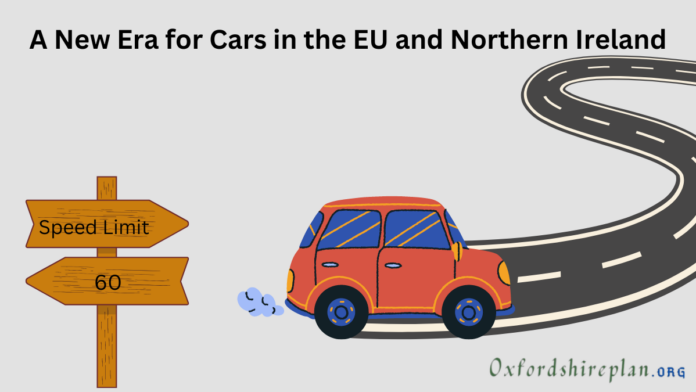Starting July 7, all new cars sold in the EU and Northern Ireland must have mandatory speed limiters. These devices aim to improve both fuel economy and safety. While the rest of the UK is not required to adopt these changes, the nature of car manufacturing means new cars will include these features regardless.
Contents
What Are Speed Limiters?
Speed limiters, part of a broader set of safety features, use satnav maps and forward cameras to read road signs. They sound an alarm if the car exceeds the speed limit for the area. Although many new cars already have similar systems, drivers often switch them off. Now, the new systems will automatically reset each time the car is started, making them harder to ignore.
The Benefits of Speed Limiters
Steve Fowler, an automotive consultant, believes it’s hard to argue against speed limiters. They help ensure drivers stick to speed limits, which can save lives and reduce accidents. Safety organizations like Brake and Rospa highlight that even small speed increases can lead to more severe accidents, especially for pedestrians and cyclists.
Rise in Speeding-Related Accidents
Speeding-related road deaths in Britain have increased, with a 20% rise in 2022. Many drivers admit to breaking speed limits, especially on motorways and urban roads. Observations show that many vehicles exceed speed limits, with peer pressure often influencing drivers to speed.
Legal and Practical Implications
With more accurate speed readings and advanced speed cameras, drivers who disable speed limiters might face legal consequences if caught speeding. Additionally, other advanced driver assistance systems (ADAS), such as automated lane-keeping and emergency braking, will also become mandatory. While there are concerns about the technology’s reliability and drivers’ comfort with automated systems, the overall benefits are seen as significant.
Changing Attitudes Toward Driving
More drivers are starting to appreciate the benefits of driving slower, not just for safety but also for fuel efficiency. Steve Fowler suggests that driving at a steady pace can be more enjoyable and cost-effective. As fuel costs rise, focusing on miles per gallon (mpg) rather than miles per hour (mph) could become the new norm. Encouraging a relaxed driving style can save fuel, reduce emissions, and make driving more enjoyable.
In summary, the introduction of mandatory speed limiters in new cars in the EU and Northern Ireland marks a significant step towards safer and more fuel-efficient driving. While there may be some resistance, the long-term benefits are expected to outweigh the challenges.
Read More:
- Complete Details On Lawsuits Against Momentum Solar
- What is the secret behind King Charles’s Sausage Fingers?
- Mel Stride: ‘The Tories Should Learn from the Unions – All Our Members Get Are Demands for More Cash’
- Upcoming England Bank Holidays 2024: What to Expect
- Government to be taken to court over work capability assessment news of reforms in UK

I am a dedicated lifestyle and fashion enthusiast, always looking for the latest trends and timeless styles. With a flair for creativity and a passion for self-expression, I provide fresh insights and tips on elevating everyday living and personal style.
















